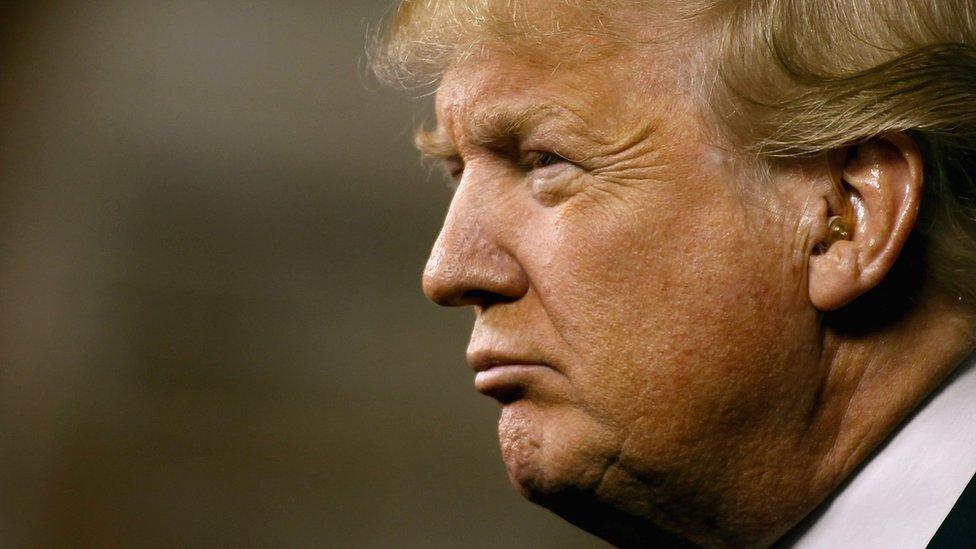Women's March: Why are UK women protesting?
- Published
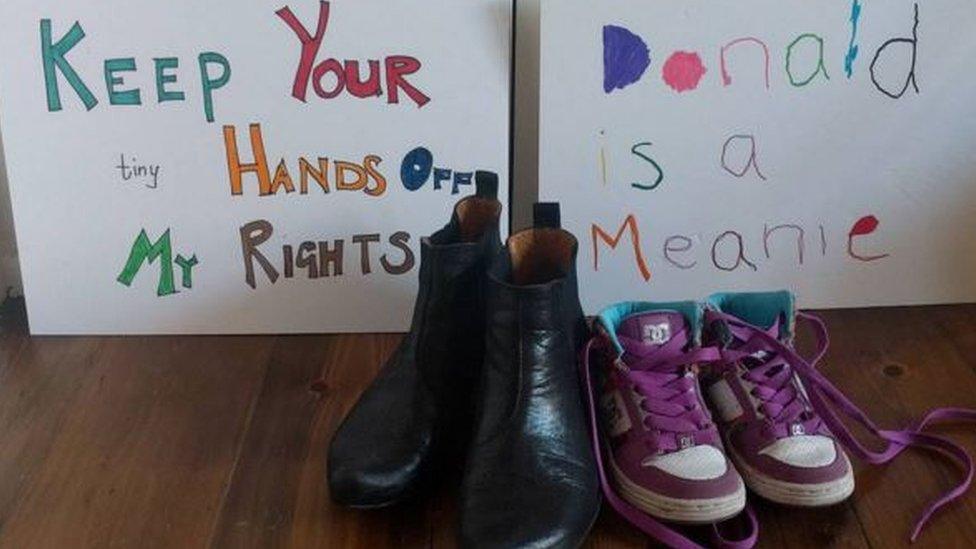
Thousands of women - and some men - are preparing to march in 14 UK cities and towns on Saturday, the first day of Donald Trump's US presidency. But what is the Women's March all about?
The events draw inspiration from the Women's March on Washington, a protest set to take place on Saturday and expected to draw crowds of 200,000 people.
Demonstrators there say they will be calling for racial and gender equality, affordable healthcare, abortion rights and voting rights - issues which they say are under threat from a Trump presidency.
But as Trump is the president of the US, what do protesters in the UK hope to achieve?
British marchers have highlighted a wide range of issues: the Brexit vote, anti-immigration feeling, the refugee crisis and Irish and Northern Irish women being denied access to abortion.
Emma McNally, one of the eight UK organisers of the London march, says that Mr Trump's election was a catalyst, but the London protest will also be against social inequality, and aims to promote human rights.
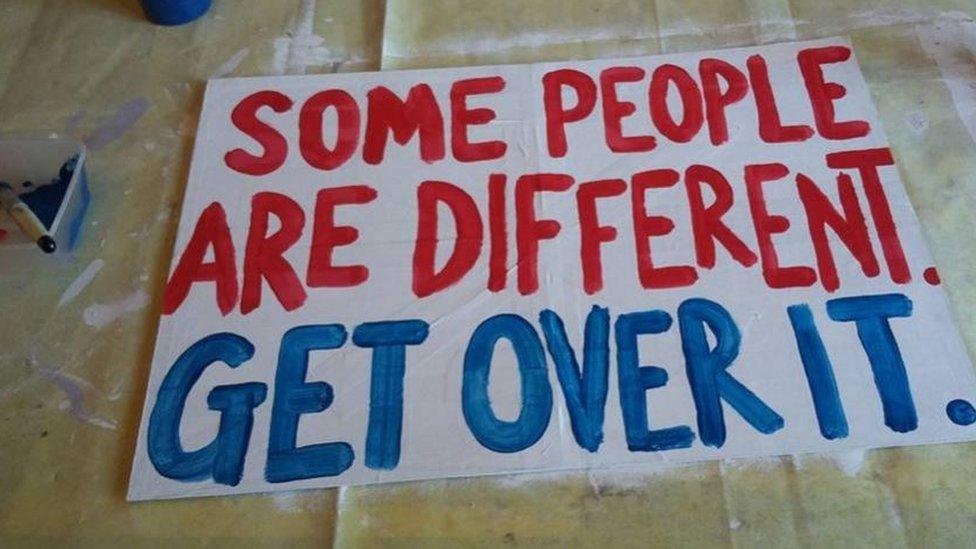
British marchers have highlight a broad range of issues
She says that the day after Mr Trump's election, which followed a campaign "characterised by division, misogyny and racism" she discovered the march in Washington, and the UK organisers met each other online.
"I was feeling incredibly depressed - the news every day last year was so dark and I think there was a sense of powerlessness against fighting against the awful things happening in the world," she says, citing the war in Syria as an example.
"[The march] is an action that gets everybody offline to be reminded that we can make a difference politically."
'Enraged'
London mum-of-one Erica Wald, who plans to attend the march, said: "The march is an important way to protest against the normalisation of Donald Trump and the politics of hate and misogyny which swirl around him."
Her four-year-old daughter Asta, she says, needs to know that it is "important to speak up if she sees something that is unfair, or wrong".
Emily Labram, 26, from Oxford, is of similar mind. The election of Mr Trump was the "last straw", she said, after a campaign which had left her "enraged" by his attitudes towards women.
Thousands of women are expected to attend the London march on Saturday, with other events to be held in UK towns and cities including Belfast, Cardiff, Lancaster, Leeds, Liverpool, Manchester, Shipley and Edinburgh.
Worldwide more than 600 marches have been organised, from the Antarctic, to the Bahamas.
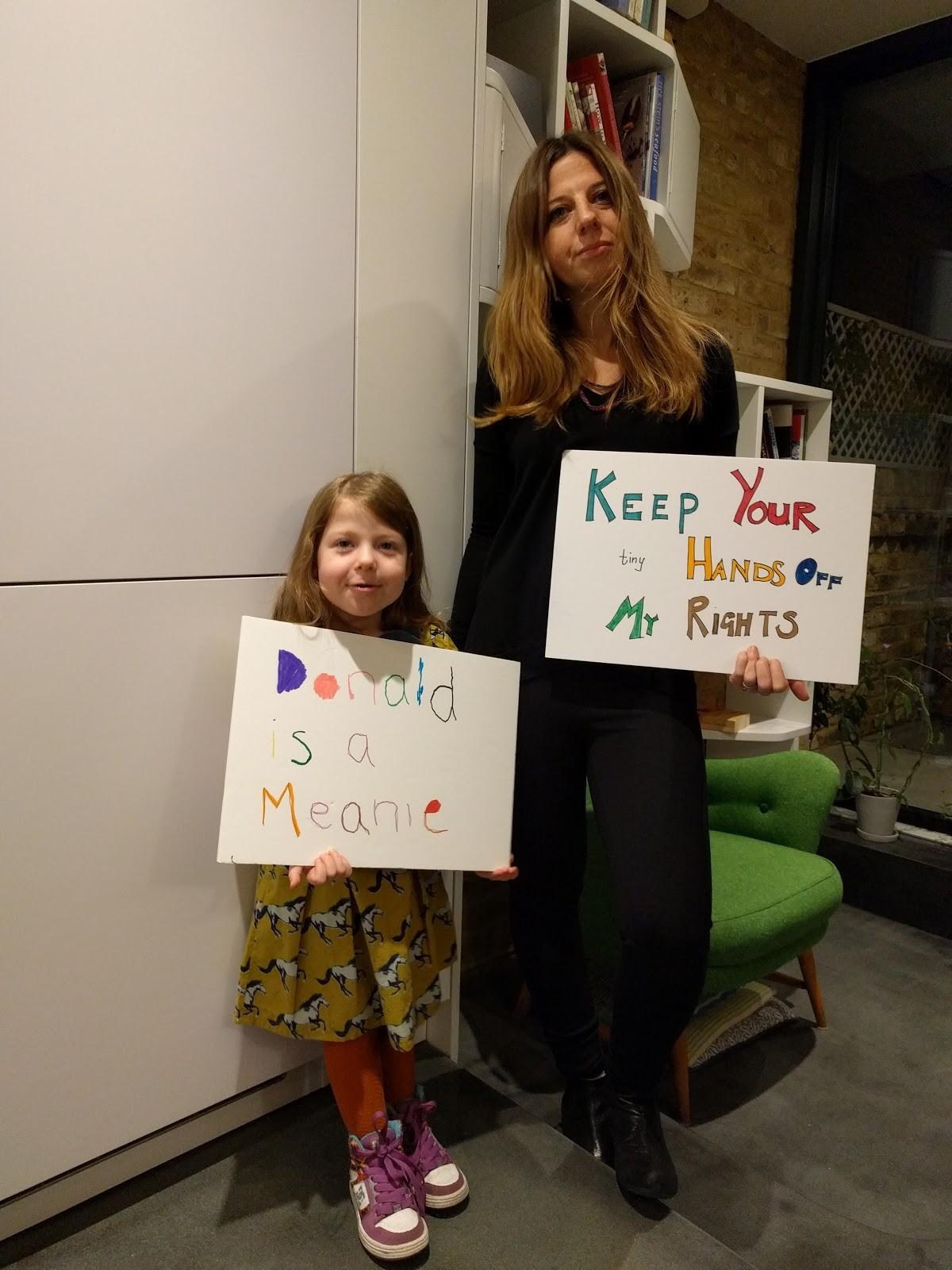
Erica Wald wants her daughter Asta to know it is "important to speak up"
The London march's charity supporters include Amnesty International, Greenpeace, Pride London and Oxfam.
Celebrities including singer Charlotte Church, Alexa Chung, Pixie Geldof and comedian Sandi Toksvig have all said they will be at marches.
'Defend my values'
Ms Labram, who works in publishing, is among those who sees the protest as an opportunity to express a broad range of values.
"I'm marching to defend my values: Kindness, inclusivity and equality, and reverence for the Earth," she says.
"I hope the march will convey to oppressors and abusers worldwide that women like me have had enough. We will not be demeaned or shamed into silence."
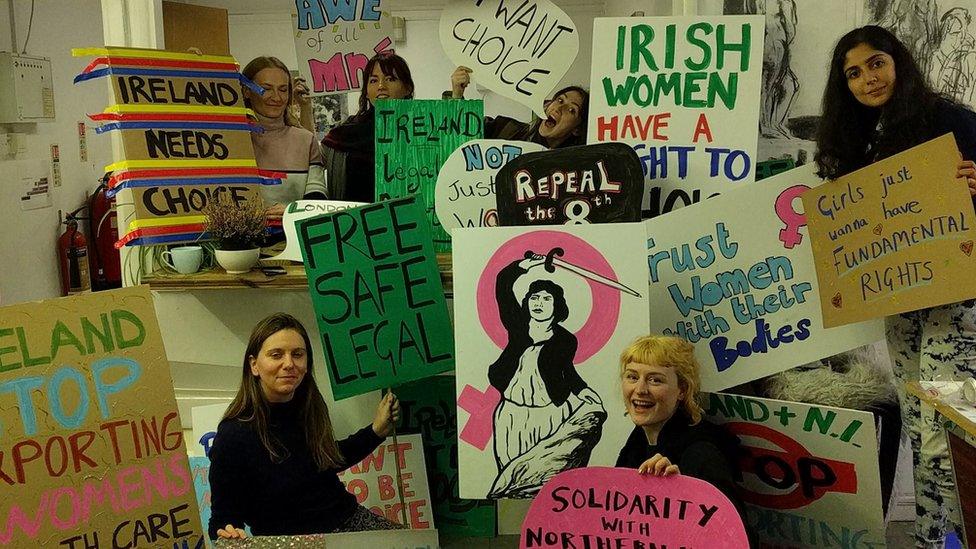
Thousands of people in 14 UK towns and cities including London, Belfast, Cardiff, Lancaster, Leeds, Liverpool, Manchester, Shipley and Edinburgh have said they will march on Saturday
Another marcher, Tara Joshi, 24, from the Isle of Wight, says she has been concerned by anti-immigrant rhetoric, attitudes towards women and issues including the election of Donald Trump as president.
"These marches around the world will hopefully stand... against Trump's cuts to Planned Parenthood, against his stance on climate change, against the restrictive abortion laws in both Ireland and Northern Ireland, and fighting to safeguard fundamental rights worldwide."
'Difficult to absorb'
Suzanne Jacob, deputy chief executive of domestic abuse charity SafeLives, says she is marching for personal and professional reasons.
"I'd been brought up thinking that however slowly, we'd always keep moving forward," she says.
"The election of Trump was like that lifelong belief being punched so hard it winded me.
"I found it genuinely difficult to absorb."
Holby City and The Fall actress Niamh McGrady calls the demonstration "a march in solidarity with those who are being failed, those who are vulnerable, those who need a voice".
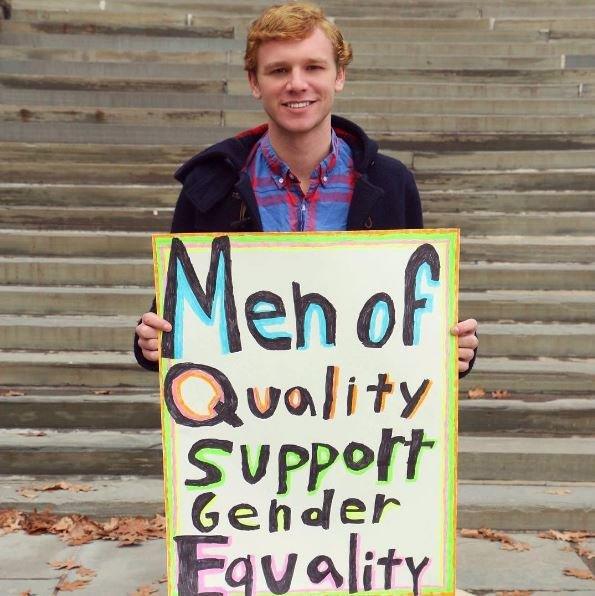
Duncan Hosie, 23, says it is important for men not to be silent on issues of gender inequality
Despite the name, organisers are clear it is not just women that are welcome.
Dad-of-three Ray Blake, from Hertfordshire, plans to attend the march with his teenage son.
"What I am hoping to achieve is to say 'I was there'. To be able to say I didn't ignore it," he says.
He says men have a responsibility to end inequality against women.
Duncan Hosie, 23, who is from the US but lives in London, will also be joining the march.
"I think it is especially important for men to not be silent on and ignore issues of gender inequality," he says.
"We have an obligation to listen to women, recognise the privileges that come from being male, serve as vocal allies and constructive partners for change, and speak out."
Anti-Trump protests
There have already been anti-Trump protests on the day of Mr Trump's inauguration.
Demonstrators draped banners across bridges in London, Bath, Oxford and Edinburgh as part of a UK-wide #bridgesnotwalls protest.
Campaigners say they hope to send the messages that "we will build bridges, not walls" in order to "reject the rise of dangerous and divisive far right politics".
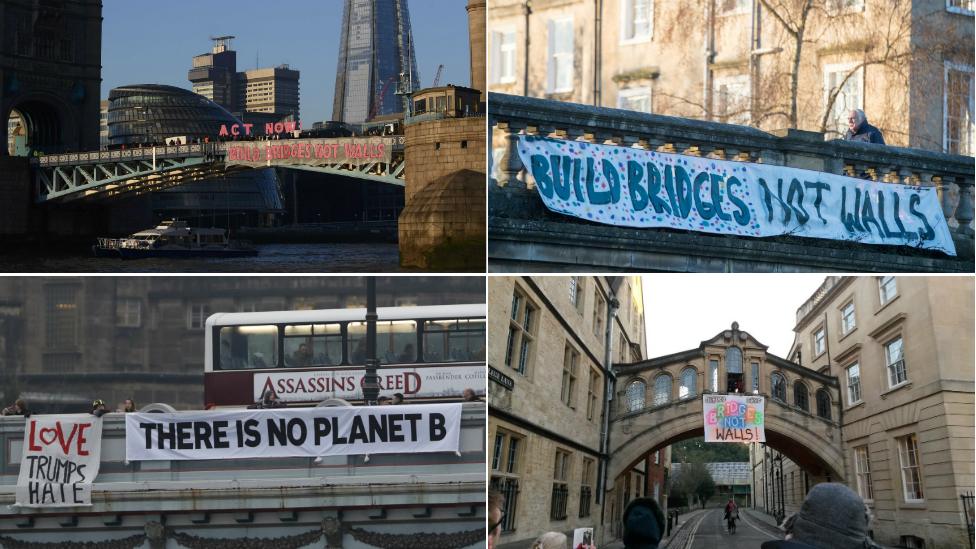
Clockwise from top left: banners on bridges in London, Bath, Oxford, Edinburgh
But on the London march's Facebook page, external, not everyone agrees with the event.
Gron Hughes wrote: "Recent political events? Legal democratic decisions that you disagree with!
"Stop moaning - put your efforts into making things work and realise that you can't always have your own way."
But the London organisers say it is not a march against a democratic process, but a chance to highlight a wide range of issues and encourage people to get involved in politics and their communities after the march.
"Of course it's hard to say what difference these marches will actually make," says Ms Joshi, who will be marching in London.
"But I think there's something deeply encouraging in the numbers involved: if we can look around and see so many people marching together, it gives a sense of hope.
"That can only be a positive."
- Published19 January 2017
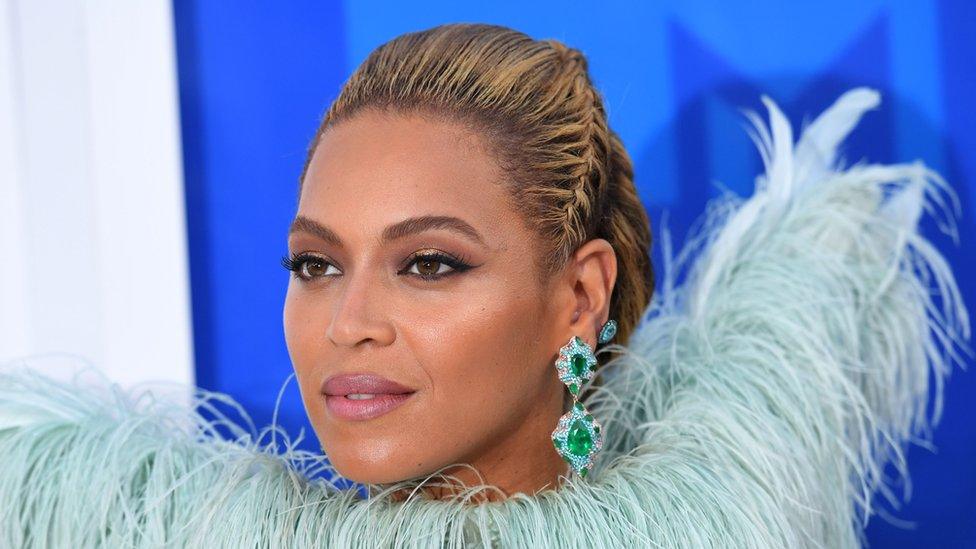
- Published14 January 2017
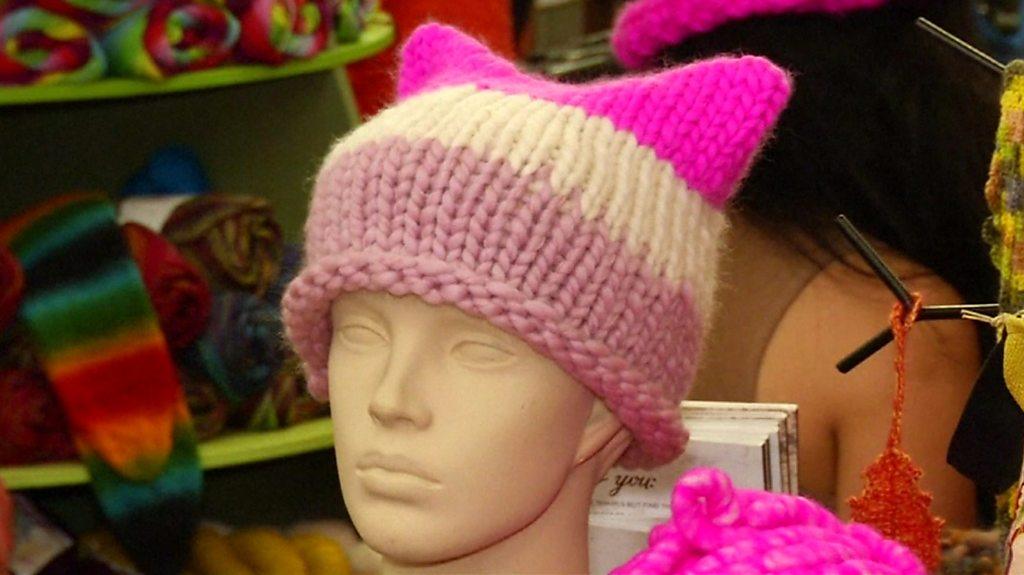
- Published20 January 2017
